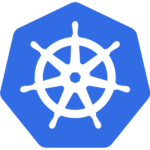CERTIFIED KUBERNETES ADMINISTRATOR ( DO-280 )

Why to pursue Certified Kubernetes Administrator
Becoming Certified Kubernetes Administrator (CKA) is a strategic investment in your professional development, offering a pathway to acquiring in-demand skills, advancing your career, and staying relevant in today’s rapidly evolving technology landscape. Whether you’re an aspiring cloud engineer, DevOps practitioner, or IT professional, earning the CKA certification can open doors to exciting opportunities and help you thrive in the dynamic world of cloud-native computing.
Here are several compelling reasons to pursue the CKA certification:
- In-Demand Skills: Kubernetes has emerged as the de facto standard for container orchestration, with widespread adoption across industries. As organizations increasingly adopt cloud-native architectures and microservices-based applications, the demand for Kubernetes skills continues to grow. By earning the CKA certification, individuals demonstrate their proficiency in Kubernetes administration, making them highly sought after by employers.
- Career Advancement: The CKA certification validates expertise in deploying, managing, and troubleshooting Kubernetes clusters in production environments. Holding a CKA certification can enhance your career prospects, leading to opportunities for advancement, higher salaries, and more challenging roles in DevOps, cloud engineering, and infrastructure management.
- Industry Recognition: The CKA certification is recognized and respected by leading technology companies, including Google Cloud, the Cloud Native Computing Foundation (CNCF), and various employers worldwide. Achieving CKA certification demonstrates your commitment to continuous learning and professional development, earning you credibility and respect within the industry.
- Hands-On Experience: The CKA exam is performance-based and requires candidates to demonstrate their practical skills in real-world scenarios. Studying for the CKA course provides hands-on experience with Kubernetes clusters, allowing you to gain proficiency in tasks such as cluster setup, application deployment, networking, security, and troubleshooting. This practical experience is invaluable for mastering Kubernetes administration and preparing for real-world challenges.
- Cloud-Native Expertise: Kubernetes is an essential component of cloud-native architectures, enabling organizations to build, deploy, and manage containerized applications at scale. By studying for the CKA course, you’ll develop a deep understanding of Kubernetes concepts, architecture, and best practices, empowering you to design, deploy, and operate cloud-native infrastructure effectively.
- Cross-Platform Skills: Kubernetes is platform-agnostic and supports deployment on various cloud providers, including AWS, Azure, Google Cloud, and on-premises environments. Studying for the CKA course equips you with transferable skills that are applicable across different Kubernetes distributions and deployment scenarios, making you versatile and adaptable to different environments.
- Community Engagement: The Kubernetes community is vibrant and active, with a wealth of resources, documentation, and support available to practitioners. By studying for the CKA course, you’ll have the opportunity to engage with the Kubernetes community, collaborate with fellow professionals, and contribute to open-source projects, enriching your learning experience and expanding your network.
- Future-Proofing Your Career: Kubernetes is continually evolving, with new features, updates, and enhancements being released regularly. By investing in CKA certification and staying abreast of the latest developments in Kubernetes, you future-proof your career and position yourself as a valuable asset to organizations looking to leverage cutting-edge technologies for their digital transformation initiatives.
Master Kubernetes with the following CKA Course Contents:
- Introduction to Kubernetes:
- 🌟 Explore the world of Kubernetes and its significance in modern cloud-native computing. Understand the principles of container orchestration and the role of Kubernetes in automating application deployment, scaling, and management.
- Kubernetes Architecture:
- 🏛️ Dive deep into the architecture of Kubernetes clusters and understand how they operate. Learn about the various components of a Kubernetes cluster, including the control plane, worker nodes, etcd, kubelet, kube-proxy, and more.
- Cluster Setup and Configuration:
- ⚙️ Learn how to set up and configure Kubernetes clusters from scratch for various environments. Explore different deployment options, including local clusters using Minikube, single-node clusters, and multi-node clusters using tools like kubeadm.
- Pods and Containers:
- 🚀 Master the fundamentals of pods and containers and their role in Kubernetes orchestration. Understand how Kubernetes manages containerized applications using pods as the smallest deployable units, and explore best practices for container image management.
- Deployments and StatefulSets:
- 🏗️ Explore deployment strategies and manage stateful applications using StatefulSets. Learn how to define, deploy, and manage applications using Deployments, ReplicaSets, and StatefulSets, and understand the differences between stateless and stateful applications.
- Services and Networking:
- 🌐 Understand Kubernetes networking models and configure services for seamless communication between pods. Explore different types of services, such as ClusterIP, NodePort, LoadBalancer, and ExternalName, and learn about Kubernetes networking concepts like DNS resolution, service discovery, and ingress.
- Storage and Persistent Volumes:
- 💾 Discover storage options in Kubernetes and provision persistent volumes for data persistence. Learn how to define persistent volume claims (PVCs), provision storage resources using storage classes, and configure volume plugins for different storage backends.
- Security and Access Control:
- 🔒 Implement security best practices and manage access control with Kubernetes RBAC. Explore Kubernetes security features, including authentication, authorization, encryption, and pod security policies (PSPs), and learn how to secure your Kubernetes clusters against potential threats.
- Monitoring and Logging:
- 📊 Learn how to monitor Kubernetes clusters and collect logs for troubleshooting and analysis. Explore popular monitoring and logging solutions like Prometheus, Grafana, Fluentd, and Elasticsearch, and understand how to configure them to monitor cluster health and performance.
- Scaling and Autoscaling: – 📈 Scale applications manually and automatically with Kubernetes scaling features. Learn how to scale applications horizontally and vertically using ReplicaSets, HorizontalPodAutoscalers (HPAs), and VerticalPodAutoscalers (VPAs), and explore best practices for autoscaling in Kubernetes.
- High Availability and Disaster Recovery: – 🛡️ Ensure high availability of Kubernetes clusters and implement disaster recovery strategies. Explore techniques for making Kubernetes clusters resilient to failures, including node redundancy, pod anti-affinity, multi-zone deployments, and backup and restore procedures.
- Troubleshooting and Debugging: – 🔍 Develop essential troubleshooting skills and techniques for diagnosing and resolving Kubernetes issues. Learn how to troubleshoot common problems related to networking, storage, scheduling, resource allocation, and application performance, and use diagnostic tools like kubectl logs, describe, and exec.
- Upgrades and Maintenance: – 🛠️ Manage Kubernetes upgrades and perform maintenance tasks to keep clusters healthy and up-to-date. Learn how to upgrade Kubernetes clusters safely, apply patches and security updates, perform rolling upgrades, and handle cluster maintenance tasks without disrupting application workloads.
- Best Practices and Tips: – 💡 Discover best practices for Kubernetes administration and gain valuable tips for optimizing cluster performance. Learn from real-world examples and case studies, and explore recommended practices for resource management, workload scheduling, configuration management, and capacity planning.
- Real-World Projects and Case Studies: – 🌍 Apply your knowledge to real-world projects and explore case studies of Kubernetes deployments in diverse environments. Work on hands-on projects that simulate real-world scenarios, such as deploying microservices applications, building CI/CD pipelines, and implementing advanced networking and security configurations.
- Exam Preparation and Practice: – 📝 Get ready for the CKA exam with comprehensive exam preparation materials and hands-on practice exercises. Review exam topics, practice with sample questions and mock exams, and gain confidence in your ability to pass the CKA exam on your first attempt.
- Community Engagement and Support: – 👥 Join a vibrant community of Kubernetes enthusiasts, engage in discussions, and receive support from fellow practitioners. Participate in forums, user groups, and online communities, and collaborate with peers to share knowledge, troubleshoot problems, and stay updated on the latest developments in Kubernetes.
- Career Guidance and Opportunities: – 🚀 Receive career guidance and explore job opportunities in the rapidly growing field of Kubernetes administration. Get insights into career paths, job roles, salary trends, and certification benefits, and discover how the CKA certification can help you advance your career and achieve your professional goals.


